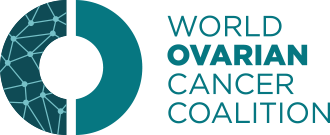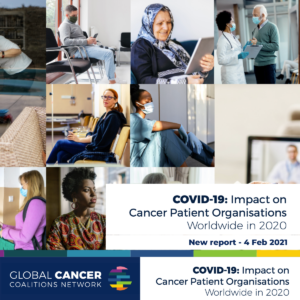
INTERNATIONAL GYNECOLOGIC CANCER SOCIETY AND WORLD OVARIAN CANCER COALITION LAUNCH GLOBAL JOINT INITIATIVE FOR WOMEN –
THE EVERY WOMAN STUDY™️: LOW- AND MIDDLE-INCOME EDITION.
Toronto, Ontario, August 31, 2021 – One year following the announcement of their Strategic Advocacy Partnership, the World Ovarian Cancer Coalition (Coalition) and the International Gynecologic Cancer Society (IGCS) are announcing the launch of The Every Woman Study™️: Low- and Middle-Income Edition at today’s Presidential Plenary of the IGCS Virtual Annual Global Meeting.
With the potential for up to 30 countries to participate in this global study, the objective of this joint initiative is to document for the first time ever, on this scale, the experiences of women with ovarian cancer in Low- and Middle-Income countries (LMIC) from pre-diagnosis through post-treatment. Specifically, the Study is being undertaken because of the current lack of evidence and insight about women’s experiences in LMIC countries – with a view to helping to address global health inequities and because it underscores the belief of both organisations that every woman, no matter where they live, should have the highest quality of care and experience best possible outcomes.
July 2021 projections from GLOBOCAN reveal that the incidence of ovarian cancer will rise overall by 37% worldwide by 2040; however, LMICs will experience a much greater increase. Over the next 20 years the burden of the ovarian cancer will be felt disproportionately by those least able to access the latest in surgery and other treatments. Building on the success of the first Every Woman Study™️ released in 2018, this new edition will specifically look at those settings that for a number of reasons were not sufficiently covered, usually go underrecognized, and are often medically and otherwise underserved.
According to the Coalition’s Programme Director and overall Study Director, Frances Reid, “The first Study provided a wealth of information about the experiences of over 1500 women living with ovarian cancer from around the world. However, with responses mainly from high-income countries, we were always clear that we needed a complete picture of the reality of ovarian cancer for women living in lower income countries. It is our ambition that this Study will reveal the challenges and perspectives of these often-neglected women. Ultimately no woman should be left behind as we work to change the future of this disease and this Study will help provide crucial evidence for work going forward, particularly as these communities will bear the heaviest burden of increases in incidence and mortality in the forthcoming years.”
Guided by an international Oversight Committee co-chaired by Robin Cohen and Dr. Tracey Adams and comprised of leading clinicians and patient advocates, the Study will run over the course of a year primarily in hospitals and clinics. “The Every Woman Study:™️ Low- and Middle-Income Edition is a hugely complex initiative but one that is urgently needed. Despite the many challenges facing clinicians and patients, including COVID-19, we have been humbled by the level of interest in participating in the Study. We believe this represents a genuine opportunity to tackle the very stark health inequities that exist in these settings through global collaboration,” remarked Mary Eiken, IGCS CEO.
Clara MacKay, CEO of the Coalition goes on to say, “We cannot let the gaps in knowledge, diagnosis, treatment and care widen as higher-income countries benefit from access to new medicines. We are also confident that this Study and its results will support the development of strong alliances between the clinical and patient advocacy communities, which we know can be a powerful driver for change.”
-30-
About The Every Woman Study™️ (2018)
Guided by an international expert advisory panel, the World Ovarian Cancer Coalition undertook the first Every Woman Study™ in 2018. The Study included the largest-ever global survey of women with the disease. The objective was simple: to address the evidence gap and identify a way forward to ensure the best chance of survival and the best quality of life for women with ovarian cancer.
Peer reviewed and published in the International Journal of Gynecologic Cancer, the Study’s survey was completed by over 1500 women in 44 countries and 15 languages. Results from this Study led to the development and launch of the Global Ovarian Cancer Charter in 2020.
About the World Ovarian Cancer Coalition
Established in 2016, the Coalition is a not-for-profit organization with close to 200 patient advocacy organization members in 37 countries working to reduce the impact that ovarian cancer has on the lives of women and their loved ones. More information can be found on www.worldovariancancercoalition.org
About the International Gynecologic Cancer Society
Established in 1987 as a not-for-profit, IGCS is a partnership of advocates, gynecologic oncologists, radiation oncologists, medical oncologists, pathologists, and other scientists who devote their professional lives to the field of gynecologic oncology and to uniting the globe in the fight against gynecologic cancers. Currently, IGCS has over 3200 members representing more than 115 countries. More information can be found at www.igcs.org.
For more information contact
Clara MacKay, CEO
World Ovarian Cancer Coalition
cmackay@worldovariancancercoalition.org
Mary Eiken, CEO
International Gynecologic Cancer Society
mary.eiken@igcs.org
CLICK HERE FOR A PDF VERSION OF THIS RELEASE
 We are excited to share our newest awareness raising campaign that we will be launching to mark Pride month (June) – entitled “No Person Left Behind”. This is just the beginning of work we will be doing to ensure that we better represent all those who are or who could be affected by ovarian cancer.
We are excited to share our newest awareness raising campaign that we will be launching to mark Pride month (June) – entitled “No Person Left Behind”. This is just the beginning of work we will be doing to ensure that we better represent all those who are or who could be affected by ovarian cancer.


